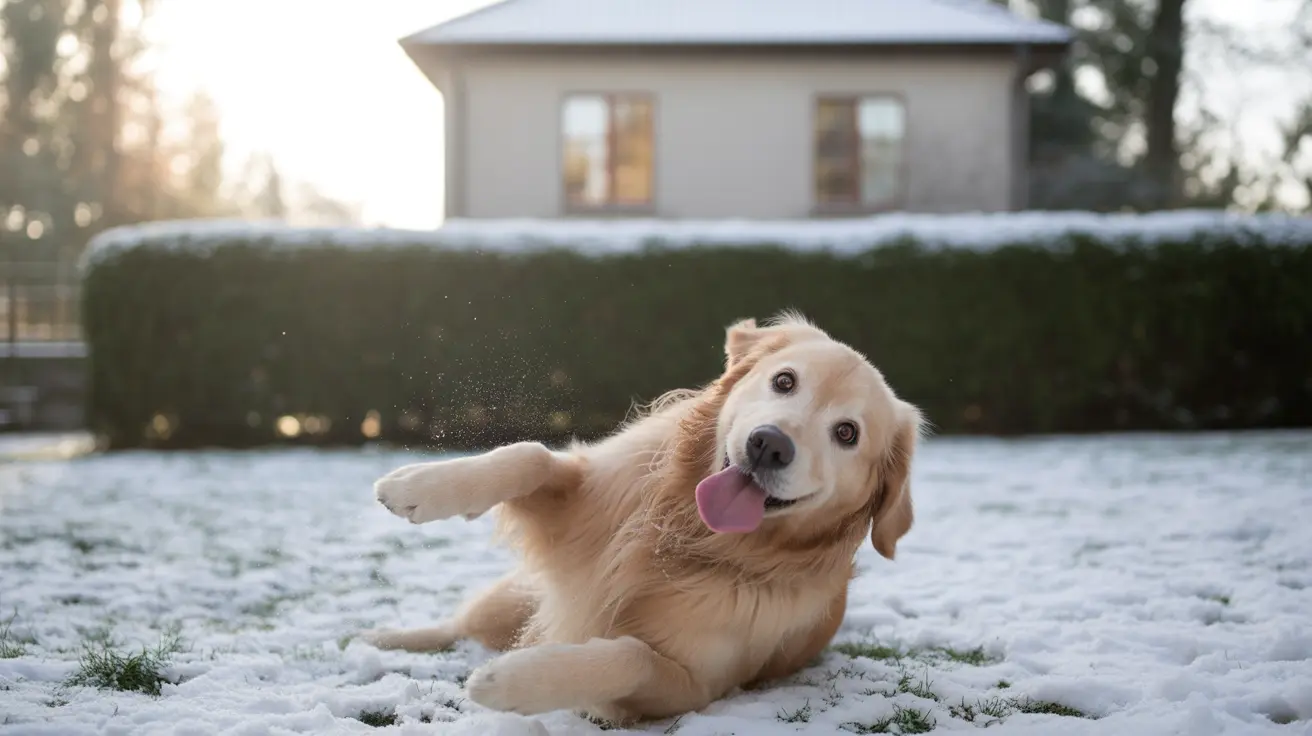When your furry friend experiences digestive issues, it can be both concerning and frustrating. Dog upset stomach is one of the most common health challenges pet owners face, ranging from mild discomfort to serious gastrointestinal problems that require immediate veterinary attention.
The canine digestive system is complex, involving multiple organs working in harmony to process food and absorb nutrients. When this delicate balance is disrupted, it can quickly affect your dog's comfort and overall well-being. Understanding the signs, causes, and appropriate responses to dog digestive issues is crucial for every pet owner.
Recognizing the Signs of Stomach Distress
Dog stomach pain symptoms can manifest in various ways, making early detection crucial for effective treatment. Common indicators include:
- Audible stomach gurgling
- Excessive gas
- Loss of appetite
- Vomiting or retching
- Diarrhea
- Lethargy
- Grass-eating behavior
- Unusual posturing or restlessness
Observing your dog's behavior and noting any sudden changes can be helpful in catching stomach problems early. Dogs may be unable to communicate their discomfort directly, but these signs can serve as important clues for pet owners.
When to Seek Professional Help
While some cases of dog upset stomach resolve naturally, certain symptoms warrant immediate veterinary attention due to the risk of serious complications. Watch for the following signs:
- Persistent vomiting or diarrhea
- Blood in stool or vomit
- Severe lethargy
- Signs of dog dehydration such as sunken eyes or dry gums
- Intense abdominal pain
- Complete food refusal
If your dog exhibits any of these symptoms, it is crucial to contact your veterinarian without delay. Rapid intervention can help prevent serious or life-threatening consequences.
Common Causes of Digestive Issues
Understanding what triggers dog digestive issues is essential for both treatment and prevention. Common causes include:
- Dietary indiscretion (eating inappropriate items)
- Sudden food changes
- Dog food allergies
- Bacterial or viral infections
- Parasitic infections
- Foreign object ingestion
- Medication reactions
- Chronic conditions such as inflammatory bowel disease (IBD) or pancreatitis
Each cause may require a different approach to care. Identifying the specific trigger for your dog's upset stomach helps ensure proper and effective treatment. Prevention often begins by being mindful of their environment, food, and potential allergens.
Effective Home Remedies and Care
For mild cases of upset stomach, several home remedies can provide comfort and help your dog recover more quickly. Always observe your pet’s symptoms closely and consult with a veterinarian if you have concerns.
Dietary Management
- Implement a bland diet for dogs (such as boiled rice and chicken) to ease digestion.
- Add pumpkin for dogs as a natural fiber source, which can help firm up loose stools.
- Serve small, frequent meals rather than large portions to minimize stress on the digestive tract.
- Maintain proper hydration by ensuring your dog has access to fresh water at all times.
Transitioning to bland, gentle foods is often the first step in managing an upset stomach. Pumpkin provides soluble fiber that can soften or firm stools, while small meal sizes reduce strain on the digestive system during recovery.
Supportive Care
- Provide dog electrolyte support, such as specially formulated fluids from your veterinarian, especially if your dog shows signs of dehydration.
- Consider dog probiotics to restore healthy gut bacteria and aid digestion after stomach upset.
- Monitor water intake to make sure your dog remains adequately hydrated during their recovery.
- Ensure adequate rest by creating a calm, comfortable environment where your dog can recover undisturbed.
Supportive care plays a vital role in your pet’s recovery. Monitoring their hydration and energy levels helps prevent complications, while probiotics replenish beneficial bacteria that support overall gut health.
Professional Treatment Options
When home care isn't enough or your dog's symptoms are severe, professional veterinary treatment may be necessary. Veterinary treatments for canine stomach upset include:
- Prescription dog stomach medication designed to reduce nausea, acid, or inflammation.
- Fluid therapy to correct dehydration and electrolyte imbalances.
- Diagnostic testing (such as bloodwork or X-rays) to identify underlying causes of digestive upset.
- Specialized diets tailored to your dog’s specific needs or diagnosed conditions.
- Anti-nausea medications to control vomiting and improve comfort.
- Antibiotics in cases of bacterial infections, as determined by your veterinarian.
Your veterinarian will determine the most appropriate course of action based on your dog's symptoms and medical history. Early intervention can help prevent minor stomach upsets from developing into more serious health issues.
Prevention Strategies
Maintaining good digestive health involves consistent care and proactive strategies, such as:
- Feeding a consistent, high-quality diet formulated for your dog's age and breed.
- Implementing gradual food transitions to avoid shocking your dog’s digestive system.
- Monitoring paw health and overall wellbeing, as digestion can be influenced by stress or unrelated illnesses.
- Scheduling regular veterinary check-ups to catch issues early.
- Practicing proper portion control to prevent overeating and obesity.
- Maintaining good hygiene practices, including regularly cleaning food and water dishes and controlling parasites.
By following these preventive measures, pet owners can greatly reduce the likelihood of digestive disturbances and ensure their dogs remain happy and healthy.
Frequently Asked Questions
- What are common symptoms of an upset stomach in dogs?
- Typical signs include vomiting, diarrhea, lack of appetite, and lethargy, though abdominal discomfort, excessive gas, and restlessness may also be observed.
- What home remedies can help a dog's upset stomach?
- Bland diets, ensuring hydration, adding pumpkin or ginger, and offering probiotics can soothe mild digestive upsets.
- When should I take my dog to the vet for stomach issues?
- Seek veterinary care if your dog's symptoms persist beyond 24 hours or if you notice blood in vomit or stool, or signs of dehydration.
- Is fasting recommended for dogs with upset stomachs?
- Short-term fasting (12–24 hours) may allow the digestive system to rest, but always check with your veterinarian before withholding food.
- What foods are safe during a dog stomach upset?
- Boiled chicken, plain rice, pumpkin, and bone broth are gentle and easy for most dogs to digest while they recover.
- How do I keep my dog hydrated during stomach issues?
- Offer small amounts of water regularly, provide ice cubes, or use diluted bone broth to encourage fluid intake.
- Can dogs have over-the-counter medications for stomach upset?
- Medications should only be given if prescribed or approved by a veterinarian, as some can be toxic or worsen symptoms.
- What causes upset stomachs in dogs?
- Common causes include dietary indiscretion, infections, allergies, sudden dietary changes, and underlying medical conditions.
- How can I prevent future stomach problems in my dog?
- Feed a balanced and consistent diet, prevent your dog from eating unfamiliar objects or foods, and avoid abrupt dietary changes.
- Are probiotics helpful for a dog's digestive health?
- Yes, probiotics support a balanced gut microbiome and can aid recovery after stomach upsets or antibiotic usage.
Managing your dog's digestive health requires attention, patience, and a good understanding of their needs. By staying vigilant and responding appropriately to signs of stomach upset, you can help ensure your pet maintains optimal digestive health and overall well-being. Remember that while many cases can be managed at home, professional veterinary care should never be delayed when symptoms are severe or persistent.






